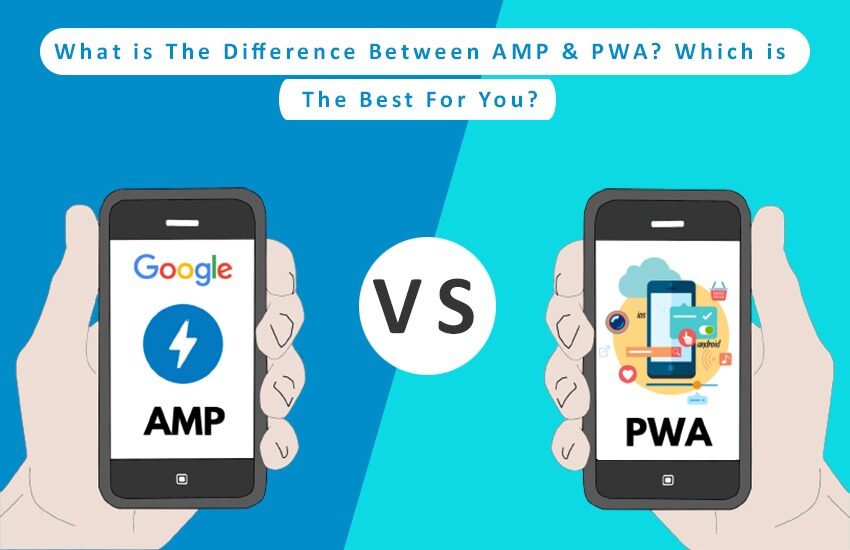Almost every business person is using Smartphone in the rapidly grown world. It opens countless chances to a business, which is faced by many competitors in the competitive mobile software market. Certainly, mobile apps are more suitable as compared with desktop or web platforms. To hit the full user satisfaction and run faster than competitors, inspired users select accelerated mobile pages or progressive web apps. Let us discuss the major difference between AMP and PWA. Which is the best for you? Let us discuss each topic step by step.
What is Progressive Web Apps?
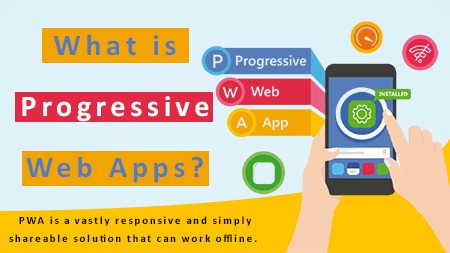
PWA is one of the most popular progressive web applications, which play a big role to amalgamate the benefits of both web and mobile apps into a single software product. PWA is a vastly responsive and simply shareable solution that can work offline. PWA can store easily CSS and HTML files in the browser cache and stores them with the service workers that make it possible to use the web page offline.
What is Accelerated Mobile Pages?
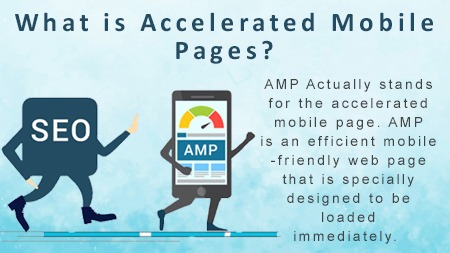
AMP actually stands for the accelerated mobile page. AMP is an efficient mobile-friendly web page that is specially designed to be loaded immediately. It is the quickest and efficiently loading solution that is fully developed according to the user experience. The task of AMPs is to decrease the amount of unwanted content and functionality. The apps show necessary content instantly. The data can be decreased up to 10 times.
How are AMPs and PWAs similar?
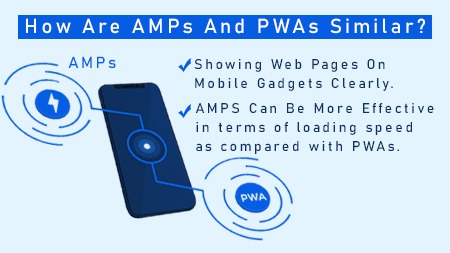
Both Accelerated Mobile Pages and Progressive Web Apps are the ways of showing web pages on mobile gadgets clearly. The aim of AMPs and PWAs is to improve the user experience. Their objective is to decrease page loading time. AMPS can be more effective in terms of loading speed as compared with PWAs. The technologies are dynamically supported by Google.
There are not several similarities. On other hand, these similarities are very necessary. Now, let us discuss about the major differences between AMPs and PWAs.
Major differences between AMPs and PWAs-
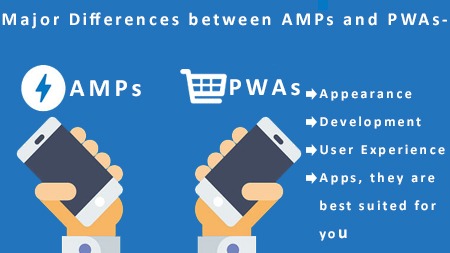
Appearance
When you use a PWA, you will not feel that you’re using a web page. PWAs look just as a mobile app. When you use AMPs, you feel just like that you’re using a web page.
Development
For PWAs, the application code is written or developed either from the scrape or with some essential parts of the existing code. On other hand, the existing code of any web page is left without unwanted JS and CSS with the aim of the web page loads quickly.
User Experience
PWAs give a better user experience beyond the expectations. It has many exciting features such as a home screen menu, push-notifications, and no browser buttons. In addition, it is very easy to download and very light in the size as compared with a daily used mobile app. It loads quicker rather than a regular web version. In addition, PWA can be used rightly, when the network connection is down.
On other hand, AMP provides a softly enhanced user experience because the web pages loads quicker than regular ones. From SEO perspective, AMPS wins the competition easily. On other hand, PWAs don’t have direct benefit for search engine optimization.
Apps, they are best suited for you
PWAs work rightly for the apps that should interrelate with the user. Social media, e-commerce websites, or online learning platforms are launched with the help of app where apps must be responsive and regularly updated with the aim of using this technology. That’s why the Twitter uses PWA.
AMPS are best suited for such platforms like newspapers or online magazines. AMPs loads content immediately, but the communication opportunities are limited.
By making a proper study of above facts, you can choose any ones from Accelerated Mobile Pages or Progressive Web Apps suitably. You can choose by seeing their similarities and differences.
